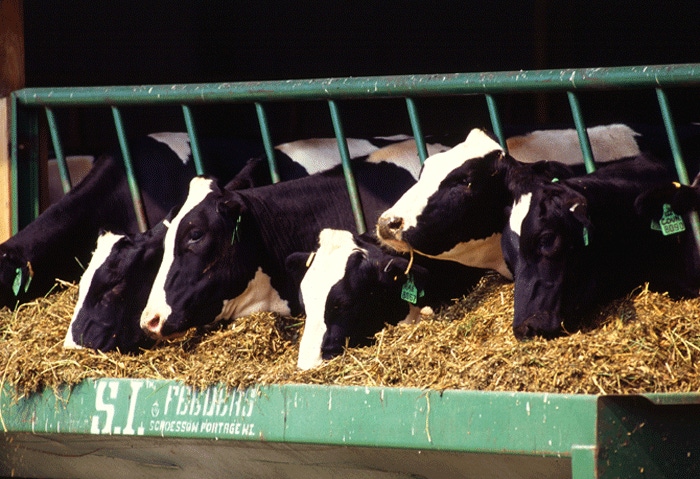
Peter Erickson and Kayla Aragona have been investigating ways to boost colostrum quality and subsequent replacement heifer health. These University of New Hampshire dairy researchers have discovered a significant, low-cost way to make it happen – bolster levels of immunoglobulin G, colostrum’s main antibody.
In brief, feeding the vitamin niacin to prepartum dairy cows for four weeks before giving birth improves colostrum quality. That can be important, especially since some 60% of colostrum produced on U.S. dairy farms is considered poor quality and could use the help, contends Erickson, and it tends to be worst during winter.
How niacin helps
Increasing rumen microbial protein production should boost protein for the cow, theorizes Aragona. More protein should produce more antibodies for use in colostrum. Niacin increases blood flow, resulting in more antibody transport to the udder. That’s the theory Erickson and Aragona were going on.
The researchers fed 0, 16, 32 or 48 grams per day of niacin (in the form of nicotinic acid) in the total mixed ration to pregnant cows each day for four weeks prepartum. There were calf responses in final weight, feed efficiency, average daily gain, hip height, hip width gain, final hip width and body length.
Calf responses born from dams receiving 32 grams (0.7 pounds) per day of nicotinic acid were consistently highest, notes Aragona. That suggests there’s a component in colostrum that actually might stimulate intestinal development, resulting in an enhanced nutrient uptake.
Raising replacement heifers is the third greatest cost for dairy producers, behind feed and labor, respectively. Reducing health costs and improving growth results in a better bottom line, contend the researchers.
Check out Is your dairy calf colostrum top-grade? on the web and learn more about colostrum quality on your farm.
About the Author(s)
You May Also Like




